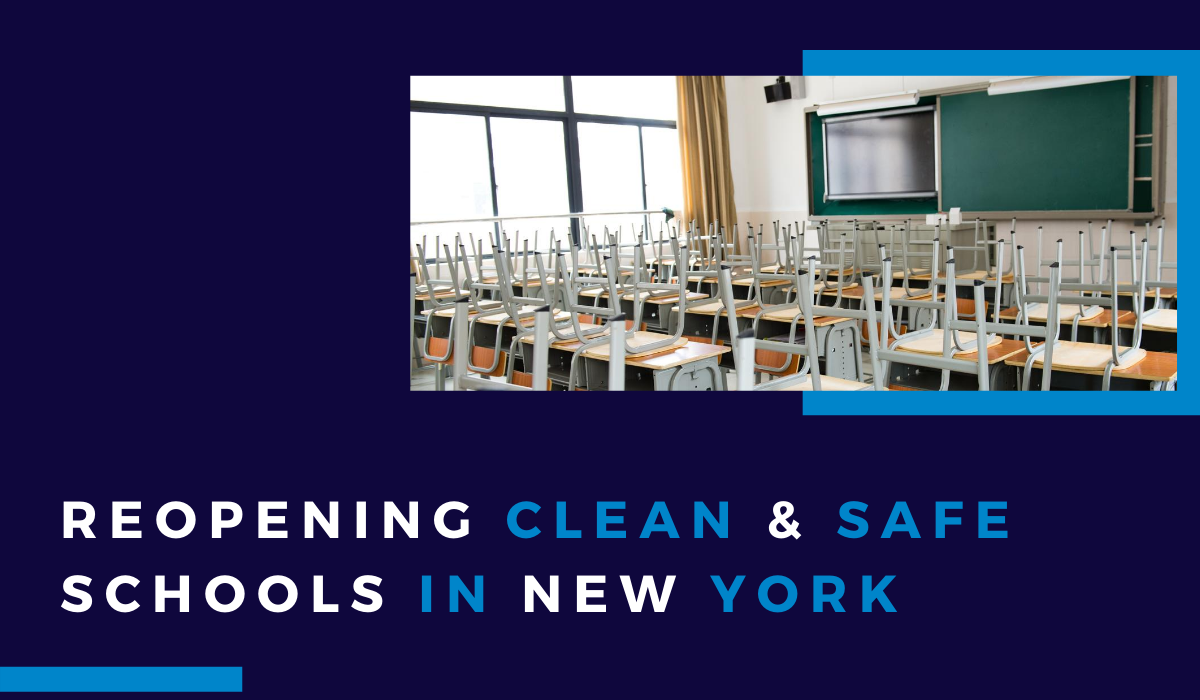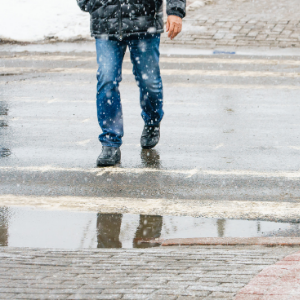NY State School Reopening Guidelines: Hand Hygiene, Cleaning & Disinfection
NY State and the NYSED have recently released their guidelines for schools to follow when developing their reopening plans to submit to the state government for review. These comprehensive documents include information on social distancing, temperature checks and the lot, but they also contain pertinent information on Hand Hygiene protocols as well as guidelines for proper cleaning and disinfection. When it comes to Hand Hygiene, Cleaning and Disinfection, we’ve taken care of the heavy lifting for you and laid out the NY State School Reopening Guidelines related to these areas. Governor Cuomo has now cleared all regions of NY to move forward with the reopening of schools provided they have an approved plan submitted to the state. While submitting these plans, making sure your school’s hand hygiene, cleaning and disinfection protocols are in order is of the utmost importance.
Hand Hygiene: Touchless is Ideal
The NY State School Reopening Guidelines mandates the following:
Students and staff must practice good hand hygiene to help reduce the spread of COVID-19. Schools should plan time in the school day schedule to allow for hand hygiene. Hand hygiene includes:
- Traditional hand washing (with soap and warm water, lathering for a minimum of 20 seconds), which is the preferred method;
- Use of alcohol-based hand sanitizers (60% alcohol or greater) when soap and water are not available, and hands are not visibly dirty.
- Provide hand sanitizer throughout common areas (e.g. entrances, cafeteria), near high touch surfaces, and use touch free dispensers when able;
- Signage should be placed near hand sanitizer indicating visibly soiled hands should be washed with soap and water; and
- Some students or staff may be unable to use alcohol-based hand sanitizers for health reasons therefore they must be permitted to wash their hands with soap and water.
In order to achieve this, schools need to provide the following:
- Adequate facilities and supplies for hand washing including soap and water;
- Paper towels or touch free paper towel dispensers where feasible (hand dryers are not recommended as they can aerosolize germs);
- No-touch/foot pedal trash can;
- Alcohol based hand sanitizers with at least 60% alcohol or disinfectant hand wipes;
- Time in the schedule to allow for frequent hand washing; and
- Promotion of proper hand washing before meals, after recess or physical education, before and after removing PPE, and other times, as appropriate.
Cleaning & Disinfection: Know Where and How Often!
The guidance provides a general framework for cleaning and disinfection practices. The framework is based on doing the following:
- Normal routine cleaning with soap and water will decrease how much of the virus is on surfaces and objects, which reduces the risk of exposure;
- Disinfection using US Environmental Protection Agency (EPA)-approved disinfectants against COVID-19. Where disinfectants are used, products should be registered with EPA and the NYS Department of Environmental Conservation (DEC). Frequent disinfection of surfaces and objects touched by multiple people is important;
- Schools must identify cleaning and disinfection frequency for each facility and area type; and
- Schools must maintain logs that include the date, time, and scope of cleaning and disinfection in a facility or area.
Cleaning plans should include considerations regarding the safety of custodial staff and other people who are carrying out the cleaning or disinfection. In order to disinfect areas frequently, additional staff may need to be trained.
High touch surfaces should be cleaned and disinfected frequently though out the day. Examples of high touch surfaces include:
- Tables, Doorknobs, Light switches, Countertops, Handles, Desks, Phones, Keyboards and tablets, Toilets, Faucets and sinks.
Students should not be present when disinfectants are in use and should not participate in cleaning and/or disinfection activities.
- It is important to establish a schedule for cleaning and/or changing heating/air conditioning system filters. Opening windows, if it can be done safely, and conducting classes outdoors are other strategies to increase airflow;
- Follow the manufacturer’s instructions for cleaning and disinfection of electronic devices such as laptops, iPads or Chromebooks, keyboards and computer mice, etc., between use. Consider the use of wipeable covers for electronics. If the manufacturer’s guidance is unavailable, consider the use of alcohol-based wipes or spray having at least 70% alcohol per CDC Guidance. Dry surfaces thoroughly to avoid the pooling of liquids;
- Shared wind musical instruments should be cleaned between use per the manufacturer’s directions;
- Playgrounds should be cleaned per CDC guidance:
- outdoor areas, like playgrounds in schools and parks generally require normal routine cleaning, but do not require disinfection
- do not spray disinfectant on outdoor playgrounds- it is not an efficient use of supplies and is not proven to reduce risk of COVID-19 to the public
- high touch surfaces made of plastic or metal, such as grab bars and railings should be cleaned routinely
- cleaning and disinfection of wooden surfaces (play structures, benches, tables) or groundcovers (mulch, sand) is not recommended
- sidewalks and roads should not be disinfected.
- Shared athletic/gym equipment (e.g., balls, protective gear) should be cleaned between use per manufacturer’s directions.
School health office cleaning must occur after each use of:
- Cots; Bathroom; and Health office equipment (e.g. blood pressure cuffs, otoscopes, stethoscopes, etc.) should be cleaned following manufacturer’s directions.
Disposable items should be used as much as possible including:
- Disposable pillow protectors; or
- Disposable thermometers, or disposable thermometer sheaths or probes, and disposable otoscope specula.
How Johnston Can Help
Johnston has been partnering in education with Schools and Universities across NY state for decades. We have an array of touchless restroom solutions to fulfil the recommendations of the state. They can be found on our Touchless Restroom Solutions Page. We also carry numerous EPA approved disinfectants for COVID-19 and all products you need to keep your schools clean and safe. Also take a look at our online Check it! Page for more documentation on reopening in schools and a variety of other market segments. Our experts can help you assess your current situation and evaluate the best way to deploy new systems and processes throughout your facilities. Johnston works with many exceptional vendors to deliver quality products, training, and service to our customers. In addition, our experts can help identify potential problem areas in your processes and help you to improve them through training, reinforcement and proper product selection. Our team even offers laundry and warewash services as well as preventative maintenance programs where an expert from our team will check on your fleet regularly, keep it in great working order and inform you of any necessary maintenance or repairs. Contact a Johnston expert today to get started.
About Johnston
Johnston has always stood for reliability, commitment, quality, and service. Our heritage means years of accumulated industry knowledge, the ability to see the bigger picture, and the know-how to determine the best possible approach. Combining this mastery with the drive to deliver exceptional results, Johnston goes beyond sales, developing strategic, end-to-end tailored solutions for each customer since 1881.



